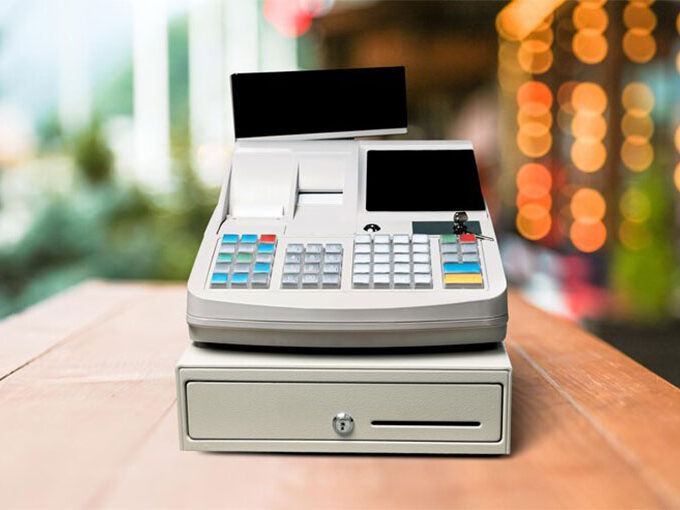SMB owners are juggling multiple hats, ranging from sales to staff. In addition to the already challenging task of running a small or medium-sized business is the arduous job of knowing how payment processing functions and how to manage costs, equipment, and accounts payable.
Here’s how the payment management system (PMS) can be your financial advisor to help you understand your company better.
What is a Payment Management System?
A Payment management system (PMS) software solution that centralizes and simplifies B2B payment transactions. Imagine PMS as the flight control for your business’s outgoing and incoming cash flow. Instead of managing invoices, checks, spreadsheets, or transactions manually. PMS provides one simple platform that helps organize and improve financial transactions.
Key Features of Payment Management System
What exactly does an effective payment management system do for your company? The most important features of a properly-designed PMS include:
- Efficient transaction processing: Speed and accuracy are hallmarks of an efficient PMS. An effective PMS will process transactions quickly while offering an intuitive user interface, keeping cash flow running smoothly while delighting your customers.
- Secure and robust security measures: Any PMS of note must provide basic security features like data encryption, fraud detection, and compliance with industry standards such as PCI DSS.
- Helpful integration capabilities: You don’t want to have a PMS that is separated from other technologies. Integrating with your CRM, accounting program or inventory software saves time and effort while analyzing the performance of your financials.
- Interface and User Experience: The PMS you use should be simple and easy to use, and allow you to concentrate on your business instead of juggling technology.
- Analytics and reporting: A quality PMS will provide you with analytics and reporting tools, providing important insight about your money flow patterns, customer trends, and spending patterns.
Also read: Top 10 Cryptocurrency Payment Gateways
How to Pick the Right Payment Management System for Your Business
Choosing the right payment management software is kind of like picking out the right gear for a long run. It needs to fit just right and support you all the way. The better the fit, the smoother your operations will run. Here’s how to find a system that keeps up with your business now and scales with you later.
Assess Your Business Needs
Before you begin looking at PMS alternatives, take a close review of your company’s operations. What are your biggest issues? Are you stymied with manual invoices? Do you need more efficient recurring billing solutions for subscriptions? Understanding your specific requirements will allow for determining the features that will fit best.
Consider how current transaction volumes compare with projected growth over this year. Businesses handling only small transactions at each payment cycle require different requirements than large, fast-growing firms with thousands of monthly transactions processed each month.
Evaluate Integration Capabilities
The PMS should not exist as an independent system. It must be compatible with other programs, particularly your accounting software. Find out if the PMS that you’re thinking of integrating seamlessly with platforms such as QuickBooks and Xero. This will help save you countless hours of manual data entry while decreasing errors.
Consider what other tools are essential in your workflow – do you rely heavily on marketing automation or CRM platforms, for instance? Select a PMS that offers easy API documentation or seamless integrations so your tech stack runs as smoothly and effortlessly as possible.
Consider Scalability and Flexibility
Selecting the best payment systems for business is an aspect of future-proofing your company. It is essential to choose the right system to expand with your business. Look out for features such as automatic payment reminders and multi-channel transaction processing (in person, online, and mobile), along with payment assistance support for multiple payment methods.
Flexible PMS systems can adapt to meet changing business requirements, from moving into new locations or offering new products to experiencing seasonal surges in sales.
Analyze Cost vs. Value
Be wary of becoming distracted by all the features a payment management software offers. Don’t lose track of its cost implications! PMS pricing ranges widely from monthly flat fees to models based on transactions. To make sure it fits within both your budget and projected growth projections, carefully examine every pricing structure offered before selecting one that’s compatible with both.
Remember, however, that the least costly alternative may not always be the most cost-effective. Consider all of the potential savings a PMS could provide through automated processes, reduced errors, and enhanced cash flow visibility. Investing in robust systems may lead to substantial long-term cost reduction. To get an overview of pricing options, visit the Pricing Page.
5 Best Payment Management Systems for Your Business
1. PayPal
PayPal has proven itself as an established, popular, and secure payments management system that makes accepting both online and in-store payments effortless. Perfect for freelancers, ecommerce sellers, and small businesses seeking reliable international payment processing with fast transfers and buyer protection features, with its simple integration features and no monthly fees needed as businesses grow!
2. Shopify
Shopify Payments provides store owners with an integrated payments platform for accepting online payments without third-party processors. As part of the Shopify ecosystem, this digital payment system supports credit cards, wallets, and local payment methods and makes an all-in-one solution ideal for merchants wanting online payment and store management from one convenient dashboard.
Also read: Unlocking the Power of Shopify Reports: A Comprehensive Guide
3. Square
Square is the best payment processing software option for both brick-and-mortar businesses and service-based ventures, providing in-person and online sales tools, such as free POS system integration, invoice creation, and mobile payments. It’s one of the best payment management systems for small businesses with easy navigation, real-time sales tracking, and swift deposits without an ongoing monthly subscription cost.
4. Clover
Clover is an all-in-one payment management solutions that provide retailers, restaurants, and service businesses. They feature sleek hardware with custom point of sale software and powerful tools for employee tracking, customer loyalty, and sales reporting. Clover provides businesses with a faster payment processing solution while streamlining daily operations. It is an ideal option for companies needing more than simply payment processing services.
5. Stripe
Stripe is a highly customizable payment platform built for online businesses, subscription services, and marketplaces. Boasting robust APIs, international currency support, and advanced billing features. It’s trusted by startups and enterprise brands alike. If your tech-savvy company requires an easily scalable online payment solution. Stripe offers seamless scalability to meet its scalable billing features!
Conclusion
Selecting an effective payment management system can have a profound effect on how smoothly your business runs. From startups to established enterprises, platforms like PayPal, Stripe, Square, Clover and Shopify provide flexible online payment solutions designed specifically for different needs. Select a system that complements your workflow, facilitates growth, and makes getting paid easy.










Leave a comment